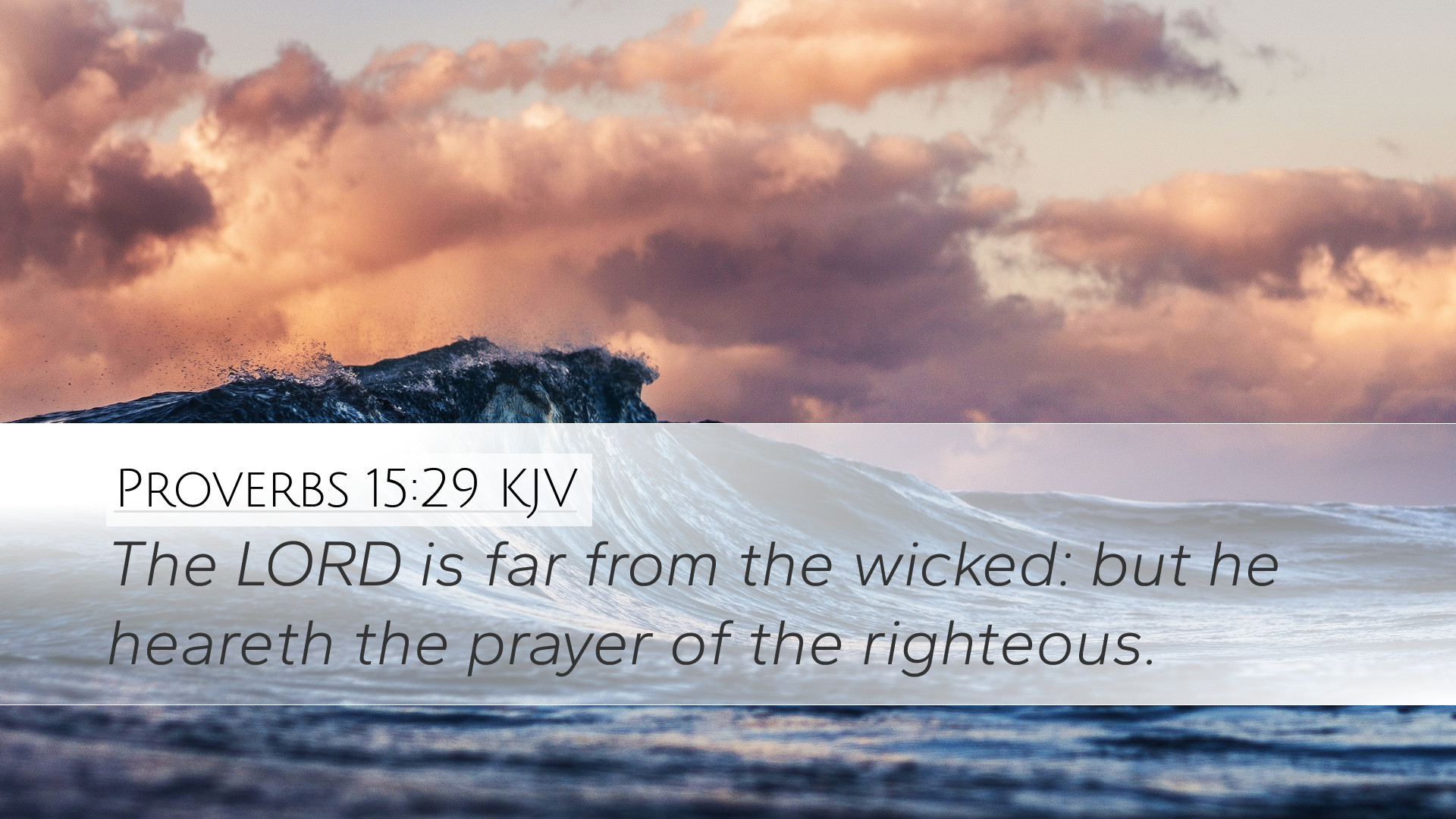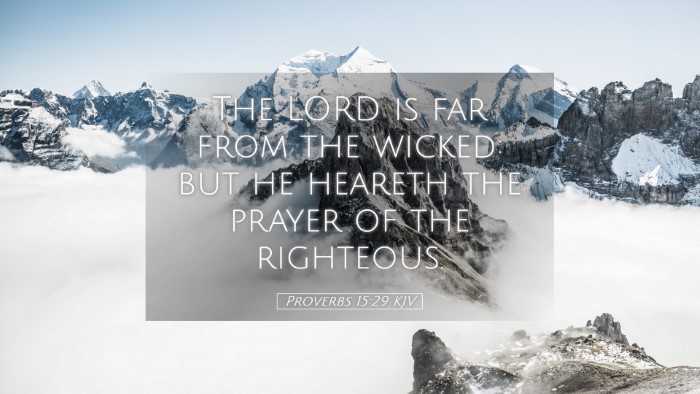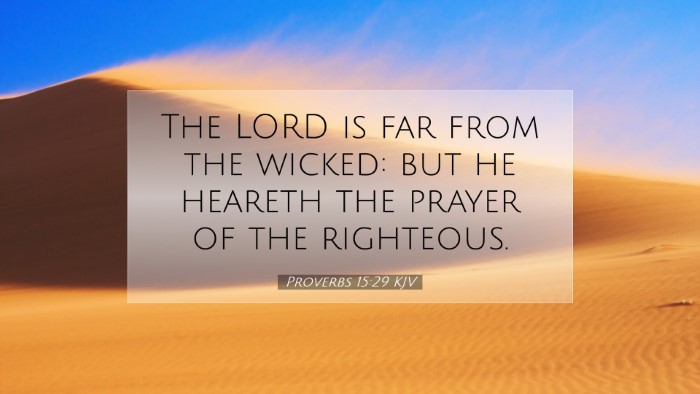Commentary on Proverbs 15:29
Verse: "The Lord is far from the wicked: but he heareth the prayer of the righteous." (Proverbs 15:29)
Introduction
This verse encapsulates a profound theological truth about the relationship between God and humanity, especially highlighting the stark contrast between the wicked and the righteous. Various public domain commentaries offer insights that deepen our understanding of this biblical principle.
Analysis of the Verse
The verse can be divided into two parts: the distance of the Lord from the wicked and His attentive nature towards the prayers of the righteous. Each part reveals significant theological and practical implications.
God's Distance from the Wicked
Matthew Henry asserts that the phrase "The Lord is far from the wicked" illustrates God’s disfavor toward those who live in rebellion against His commandments. This distance is not merely geographical but speaks to a spiritual separation driven by sin.
Albert Barnes elaborates on this by highlighting that the term "wicked" encompasses all those who consciously choose wrongdoing. He emphasizes that such individuals, by their sinful choices, forfeit the precious communion they could have with God.
Adam Clarke adds that this distancing of God from the wicked serves a dual purpose: it acts as a judgment upon sin and simultaneously underscores the holiness of God, who cannot dwell with iniquity. This treatment of sin reflects God’s justice and righteousness.
The Prayer of the Righteous
In contrast, the second part of the verse, "but he heareth the prayer of the righteous," highlights God's attentiveness to the prayers of those who seek Him with integrity. Here, we see an assurance of God's favor towards the righteous.
Matthew Henry notes that the righteous are those who have been made acceptable before God through faith and obedience. Their prayers are not mere words; they represent the inward commitment to align with God’s will. Thus, God delights in hearing their cries.
Albert Barnes echoes this sentiment, suggesting that the prayers of the righteous are infused with sincerity, seeking not just personal benefit but divine will. He points out that God’s willingness to listen is an expression of His grace toward His devoted servants.
Adam Clarke emphasizes the relational aspect here. He asserts that true prayer is a dialogue with God, nurtured by a righteous life. The connection is highlighted in terms of God's readiness to respond to those who walk in His ways.
Theological Implications
This verse brings forth several important theological implications:
- Judgment and Mercy: The juxtaposition of the wicked and the righteous serves as a reminder of God's judgment against sin and His mercy toward those who strive to live righteously.
- Implication for Prayer: The effectiveness of prayer is rooted in one's relationship with God, affirming that righteousness is a prerequisite for being heard by God.
- Divine Relationship: The nature of one's relationship with God is revealed not only in the act of prayer but in the lifestyle that accompanies it.
Practical Applications
For pastors, theologians, and lay believers, this verse provides several practical applications:
- Self-Examination: Believers are called to reflect upon their lives and assess whether they align with God's standards of righteousness.
- Encouragement to Pray: It serves as an encouragement to maintain an active prayer life, emphasizing the importance of a righteous heart in seeking God’s will.
- Teaching Moment: Pastors are afforded the opportunity to teach about the necessity of repentance and living in a manner that is conducive to experiencing God's presence and answering prayer.
Conclusion
Proverbs 15:29 succinctly illustrates a critical aspect of the divine-human relationship, urging believers to reflect on their conduct and its impact on their communion with God. It calls for a commitment to righteousness as the foundation for prayer and divine favor. By affirming the profound implications of this verse, we align ourselves more closely with the heart of God, inviting His presence into our lives and communities.


